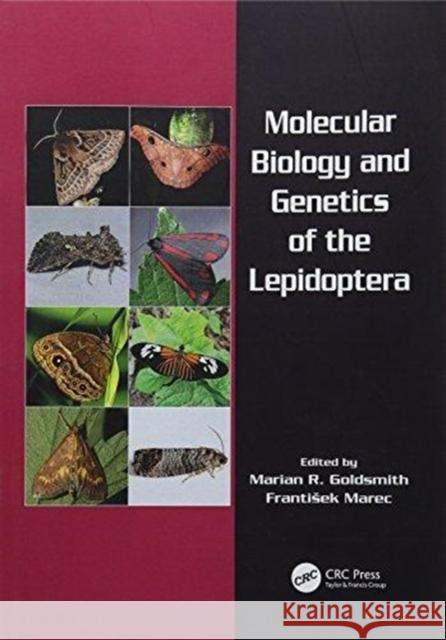Molecular Biology and Genetics of the Lepidoptera » książka
Molecular Biology and Genetics of the Lepidoptera
ISBN-13: 9781138111721 / Angielski / Miękka / 2017 / 370 str.
Molecular Biology and Genetics of the Lepidoptera
ISBN-13: 9781138111721 / Angielski / Miękka / 2017 / 370 str.
(netto: 389,38 VAT: 5%)
Najniższa cena z 30 dni: 377,75
ok. 16-18 dni roboczych.
Darmowa dostawa!
Numerous and charismatic, the Lepidoptera is one of the most widely studied groups of invertebrates. Advances in molecular tools and genomic techniques have reduced the need for large sizes and mass-rearing, and lepidopteran model systems are increasingly used to illuminate broad-based experimental questions as well as those peculiar to butterflies and moths. Molecular Biology and Genetics of the Lepidoptera presents a wide-ranging collection of studies on the Lepidoptera, treating them as specialized insects with distinctive features and as model systems for carrying out cutting-edge research. Leading researchers provide an evolutionary framework for placing moths and butterflies on the Tree of Life. The book covers progress in deciphering the silkworm genome and unraveling lepidopteran sex chromosomes. It features new information on sex determination, evolution, and the development of butterfly wing patterns, eyes, vision, circadian clocks, chemoreceptors, and sexual communication. The contributors discuss the genetics and molecular biology of plant host range and prospects for controlling the major crop pest genus Helicoverpa. They also explore the rise of insecticide resistance, the innate immune response, lepidopteran minihosts for testing human pathogens and antibiotics, and the use of intrahemocoelic toxins for control. The book concludes with coverage of polyDNA virus-carrying parasitoid wasps, and the cloning of the first virus resistance gene in the silkworm. Understanding the biology and genetics of butterflies and moths may lead to new species-selective methods of control, saving billions of dollars in pesticide use and protecting environmental and human health-making the sections on strategies for pest management extremely important. This book will open up new paths to the research literature for a broad audience, including entomologists, evolutionary and systematic biologists, geneticists, physiologists, biochemists, and molecular biologists.











